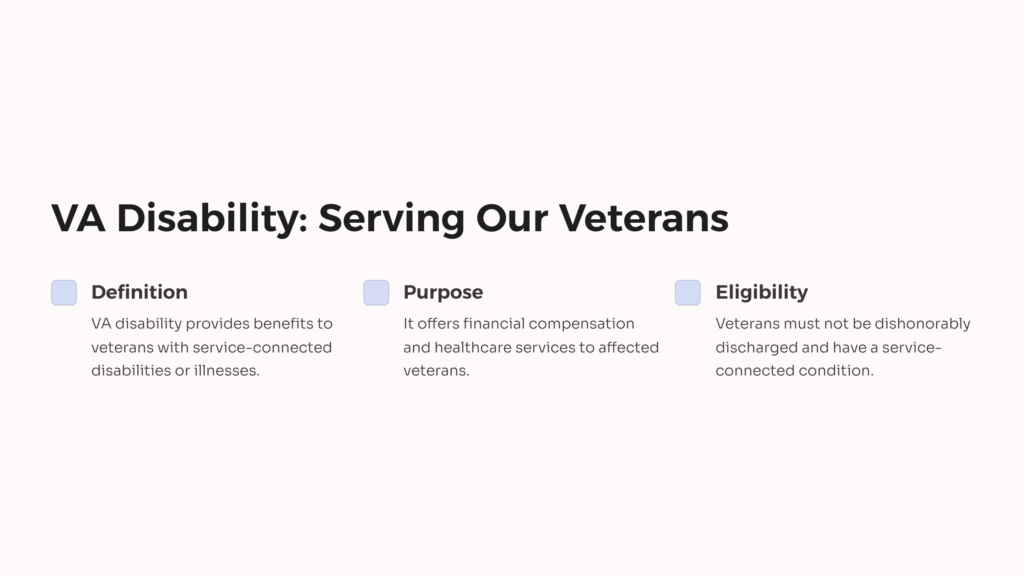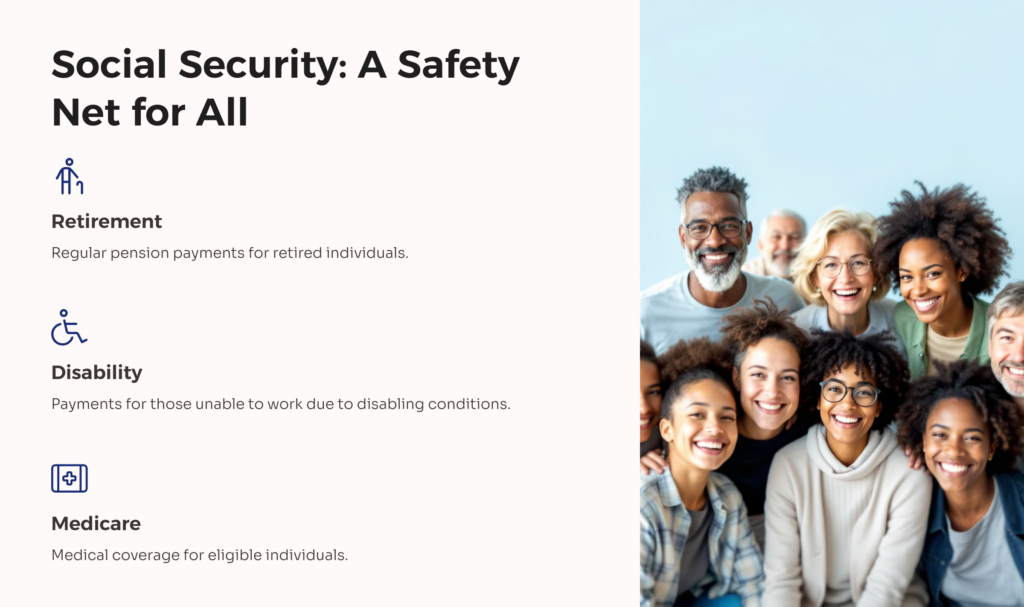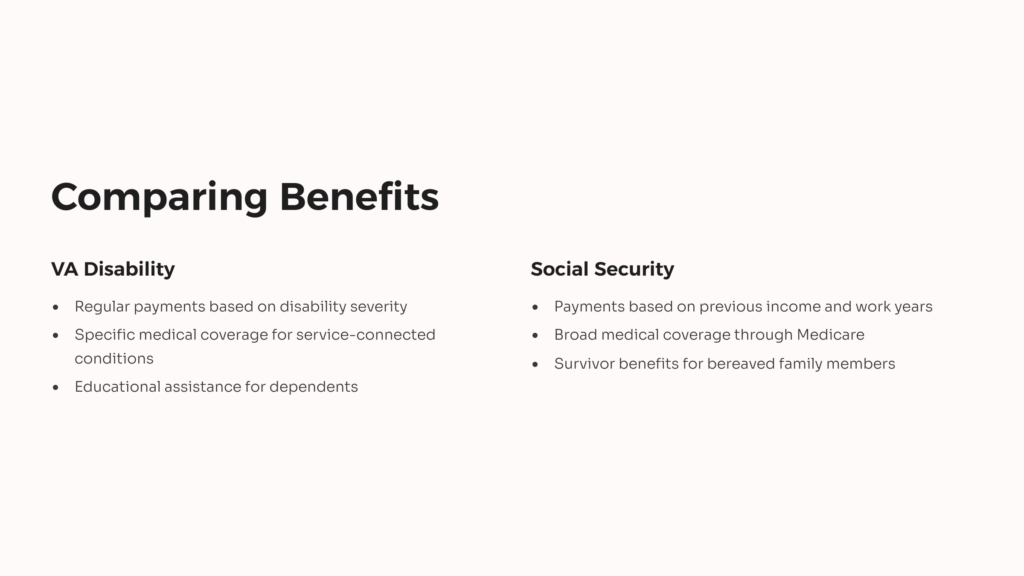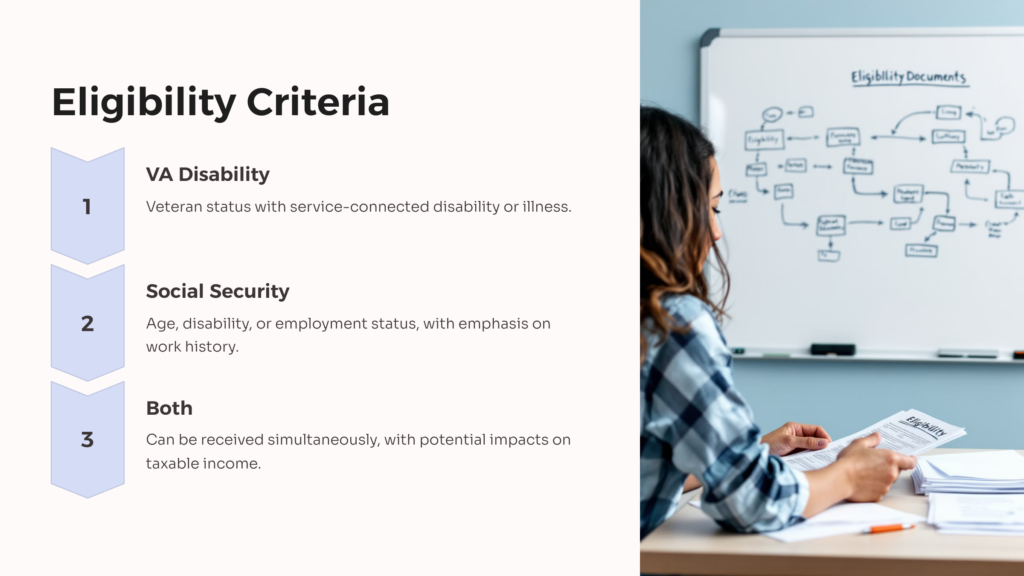Introduction
In today’s age, it’s essential for every individual to understand the various forms of financial assistance they may become eligible for. The Veterans Affairs (VA) disability benefits and Social Security are two such critical government aids. Both of these represent two different facets of a safety net made available to US citizens who meet certain criteria. Through this comprehensive guide, we aim to provide an in-depth understanding of VA disability benefits and Social Security, enabling individuals to better equip themselves for the future.
Importance of Understanding the Differences
Firstly, it’s imperative to understand that VA disability benefits and Social Security are distinctly different programs. Both carry distinct eligibility requirements, benefits, and application processes designed to serve different sections of the population. Understanding the differences between these two will not only enable you to make well-informed decisions about your future but also help you to avoid pitfalls and confusion that may lead to potential administrative errors and delays.
Understanding VA Disability

Definition and Overview
VA disability is a benefit program provided by the United States Department of Veterans Affairs. It’s designed to provide disability services to veterans who have become impaired or disabled during their military service, granting them monthly payments as a form of financial assistance.
Purpose and Benefits
The main purpose of VA disability is to provide financial compensation to former service members who have been injured or otherwise had their physical or mental health adversely affected due to their military service. These conditions may include personal injury, chronic pain, illness caused by exposure to toxic substances, anxiety conditions including PTSD or another mental health disorder, and any other conditions that affect your mind or body. These VA benefits include regular monetary payments that vary based on the degree of disability, precise healthcare services, and various benefits for dependents such as educational assistance and dependency indemnity compensation. These benefits are intended to help treat symptoms as well as provide compensation to help supplement any loss of income caused by these debilitating conditions and the cost of care, treatment, and medication associated with them.
Eligibility
Eligibility for VA disability is quite specific. A candidate must be a veteran who was not dishonorably discharged and has a service-connected disability or illness. Such a disability or illness must have happened during or was aggravated by their military service.
Understanding Social Security

Definition and Overview
By contrast, the Social Security Administration is a government agency that runs broad welfare programs that cover virtually all American citizens and legal residents. It provides a diverse array of benefits, including retirement benefits, disability benefits, survivor benefits, and Medicare. The Social Security Administration funds and administers disability benefits through 2 main programs: the Social Security Disability Insurance (SSDI) program and the Supplemental Security Income (SSI) program. You are eligible to receive SSDI benefits if you 1) have a disability and 2) worked enough years to qualify and paid Social Security taxes during the years you worked. SSI provides you with compensation to cover basic needs if you are 65 or older or have a disability, regardless of work history.
Purpose and Benefits
Social Security aims to offer a protective safety net for the entire American populace. The benefits under Social Security range extensively. They encompass regular pension payments for retired individuals, medical coverage through Medicare, disability payments for those unable to work due to a disabling condition, and survivor benefits for bereaved family members.
Eligibility
The eligibility for Social Security depends on the specific program. As a blanket rule, however, individuals must have paid into the Social Security system through payroll taxes and must meet specific age, disability, or familial circumstances.
Comparing VA Disability and Social Security

Benefits Comparison
Both programs offer complementary sets of benefits. VA disability benefits focus heavily on providing regular payments to disabled veterans which vary in amount depending on the degree of disability. Social Security, on the other hand, offers a more holistic spectrum of benefits covering retirement, disability, medical coverage, and bereavement support.
Regular payments
In terms of regular payments, both VA disability benefits and Social Security offer this provision. However, the amount provided under VA Disability depends on the severity of the veteran’s disability while Social Security payments usually depend on the individual’s previous income and years of work.
Medical Coverage
The VA disability program offers specific medical coverage for the disability or ailment connected with the veteran’s service. However, Social Security provides broad medical coverage to the retired and disabled through the Medicare program.
Dependents’ Benefits
VA Disability provides educational assistance and compensation to dependents whereas Social Security provides survivor benefits and disability benefits for children.
Eligibility

For VA disability, an individual has to be a veteran with a service-connected disability. The Social Security system places a huge emphasis on the age, disability, and employment status of the person.
The Interplay Between VA Disability and Social Security
Contrary to common belief, you can receive both VA disability and Social Security simultaneously. There are no provisions prohibiting an individual from obtaining both, leading us to the coexistence of these benefits. However, there are subtle interactions and considerations, such as the potential impact on taxable income, that individuals should be aware of.
Applying for VA Disability and Social Security
Applying for these benefits may seem daunting, but with the correct information and guidance, one can easily and effectively navigate these processes. For VA disability, one must apply through the Veterans Affairs office or online. For Social Security, one can apply online, over the phone, or in person at a local Social Security Administration office.
Conclusion
By understanding the intricate details of both VA disability and Social Security, one can take full advantage of the benefits they are entitled to. Navigating through these systems may seem challenging, but with the right knowledge and approach, it’s possible to maximize the assistance both of these programs offer and secure a comfortable future for yourself and your family. As with all governmental processes, patience and persistence are key. Just remember, their purpose is to provide aid and security when you need it, and that’s a powerful thing indeed.
 AllVeteran.com Advisors
AllVeteran.com Advisors
With expertise spanning local, state, and federal benefit programs, our team is dedicated to guiding individuals towards the perfect program tailored to their unique circumstances.

















